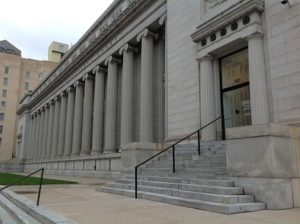Legal Systems
A legal system can be defined as the entire organized structure or the framework which determines and defines the body of laws, rules, and regulations applicable to a particular political entity and creates the machinery and institutions of the administration.
Sometimes the dispensation and the enforcement of the justice therein. From the previous definition, it is undeniable that the legal systems differ from one sovereign state to the other. Thus, the different systems that exist in the world, for instance, that of United States of America, Britain, Nigeria, South Africa, Saudi Arabia, Germany, and Australia.
Components Include;
Laws, Rules, And Regulations Enacted By The Legislature
 These are prevailing organic customs and judicial precedents developed by the courts. The judicial machinery by which the courts are sometimes bound by, settle disputes and also define the rights and duties of the legal persons. The rules and regulations governing the legal profession especially the education training that normally happens primarily and sometimes the practice of lawyers.
These are prevailing organic customs and judicial precedents developed by the courts. The judicial machinery by which the courts are sometimes bound by, settle disputes and also define the rights and duties of the legal persons. The rules and regulations governing the legal profession especially the education training that normally happens primarily and sometimes the practice of lawyers.
Most of the time, the machinery for maintenance and that of the enforcement of law and order in the society, the police force and some institutions such as those of the punishment and enforcement of law and order in the society. That is the prisons and some children’s approved schools or reformatories and lunatic asylums.
International Law
There are hundreds of legal systems in the world, and at the global level, international law is one of the most important. It does not matter whether it has been created by the practice of sovereign states or by the agreement among them in the relevant treaties. Some of the transnational entities such as the European Union have gone to the extent of creating their legal structures.
 Sometimes despite the national level having over 180 sovereign states in the United Nations organization. Many of these federal or Con-federal and their constituents parts may as well as have their law, and sometimes this great variety has to begin by emphasizing one great division that leads to religious and secular legal systems. Each side of the split holds quite different views as to law, and in its source, scope, sanctions, and function all this comes down to also the secular law that is primarily made by humans.
Sometimes despite the national level having over 180 sovereign states in the United Nations organization. Many of these federal or Con-federal and their constituents parts may as well as have their law, and sometimes this great variety has to begin by emphasizing one great division that leads to religious and secular legal systems. Each side of the split holds quite different views as to law, and in its source, scope, sanctions, and function all this comes down to also the secular law that is primarily made by humans.
The result of the classification will differ primarily depending on whether we as a society, concentrate on public or the public law. The criteria would then be that, the state structure and the relations of government entities including the courts as well with each other and with the citizen and also the field would change the constitutional law.


